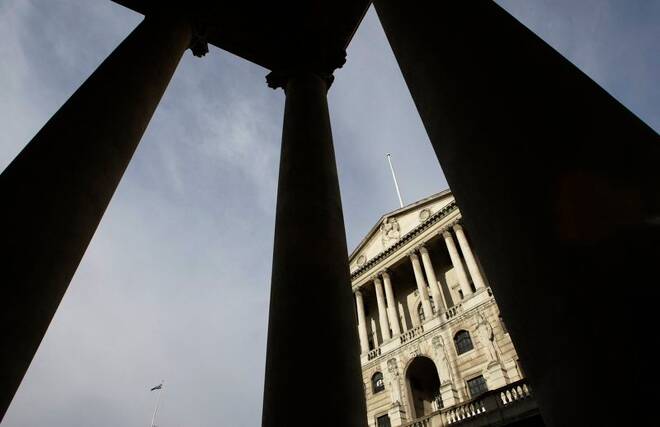Advertisement
Advertisement
UK mortgages jump, Omicron barely dents consumer lending
By:
LONDON (Reuters) - British lenders approved many more mortgages than expected in December, according to Bank of England data on Tuesday that underlined the recent strength of the housing market.
LONDON (Reuters) -British lenders approved many more mortgages than expected in December, according to Bank of England data that underlined the post-lockdown strength of the housing market and added to signs of only a modest economic hit from the Omicron wave of COVID-19.
The BoE said 71,015 mortgages were approved in December, up from 67,859 in November and above all forecasts in a Reuters poll that had pointed to 66,000 approvals.
Britain’s housing market has been robust through most of the pandemic, and there were surges in mortgage lending ahead of the expiration of temporary tax breaks in June and September 2021.
Tuesday’s BoE data – alongside robust house price growth figures for January from mortgage lender Nationwide – pointed to continued momentum, despite rising BoE interest rates and a squeeze on incomes from fast-rising consumer price inflation.
“Though the market isn’t as frenetic as it was last year, there is no shortage of demand from both purchasers and those looking to remortgage before the Bank of England raises the base rate again,” said Simon Gammon, managing partner at mortgage broker Knight Frank Finance.
Nationwide’s data showed house prices in January were 11.2% higher than a year earlier, the biggest annual increase since June 2020.
Britain was hit by a wave of cases of the Omicron variant of coronavirus in December, which hurt consumer spending as many people chose to stay at home and avoid socialising.
Net consumer lending rose by 831 million pounds ($1.12 billion) in December, broadly as expected and down from November’s 999 million pound increase.
“Consumers exercised a touch more caution as Omicron COVID-19 cases surged at the end of last year, but it still suggests the economy didn’t collapse,” Adam Hoyes, economist at consultancy Capital Economics, said.
Lending has been picking up after a slump during the pandemic when many richer households built up savings due to reduced opportunities to spend on travel and socialising.
Consumer credit rose by 5.5% on an annualised basis in the final quarter of 2021, the biggest rise since the three months to the end of February 2020, before the start of pandemic restrictions in Britain.
($1 = 0.7417 pounds)
(Reporting by Andy Bruce and David MillikenEditing by William Schomberg)
About the Author
Reuterscontributor
Reuters, the news and media division of Thomson Reuters, is the world’s largest international multimedia news provider reaching more than one billion people every day. Reuters provides trusted business, financial, national, and international news to professionals via Thomson Reuters desktops, the world's media organizations, and directly to consumers at Reuters.com and via Reuters TV. Learn more about Thomson Reuters products:
Advertisement
